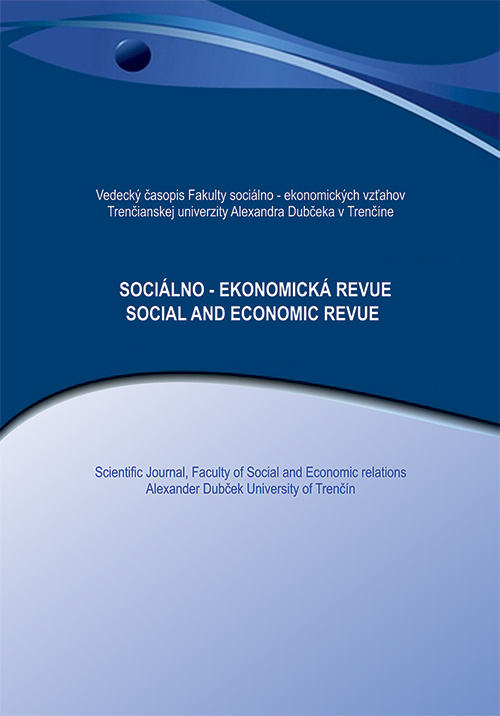LEGAL FORMS OF BUSINESS COMPANIES IN SLOVAKIA AND GERMANY – COMPARATIVE ANALYSIS
Business companies represent, beside the sole proprietorship, the most important way of running business in Slovakia. Many Slovakian business companies enter into business relationships with companies from other member states of the European Union and the rest of the world. This is the reason why we consider it necessary to understand the legal regulation and the basic features of business companies in other states of the European Union. The aim of this article is to compare legal forms of business companies in Slovakia and Germany. We chose Germany because it is the main business partner of Slovakia in both the import and export of goods. This article is based on the analysis of legal acts in the business sector in Slovakia and Germany. Our analysis confirmed that there are significant differences in the features and types of business companies in Slovakia and Germany despite similarities of nomenclature.
Vydanie: 2018/1 Strany: 32-41 Klasifikácia JEL: L21, L26, M21
DOI:
Kľúčové slová: Business companies. Slovak Republic. Germany. Legal forms of business companies. Legislation
Sekcia: ECONOMICS AND ECONOMY
Kontakty:
Miroslava, Knapková, Ing., Mgr., PhD.
Department of Economics,
Faculty of Economics, Matej Bel University
Tajovského 10, 975 90
Banská Bystrica,
e-mail: miroslava.knapkova@umb.sk
Viera, Krešáková, Mgr., PhD.
Department of language communication in business,
Faculty of Economics, Matej Bel University
Tajovského 10, 975 90
Banská Bystrica,
e-mail: viera.kresakova@umb.sk
Literatúra:
Antunes, E. J. et al. (2017). Report of the Reflection Group on the Future of EU Company Law. European Commission. Internal Market and Services. [online]. [cit. 20.9.2017]. Available at: http://ec.europa.eu/internal_market/company/docs/modern/reflectiongroup_report_en.pdf.
Budde, A., Child, J., Francis, A., Kieser, A. (2016). Corporate Goals, Managerial Objectives, and Organizational Structures in British and West German Companies. Organization Studies, 3(1), pp. 1-32.
Cahn, A., Donald, D. C. (2010). Comparative Company Law: Text and Cases on the Laws Governing Corporations in Germany, the UK and the USA. Cambridge University Press, 900 p.
Dědič, J., Štenglová,I., Kříž, R., Čech, P. 2012. Akciové společnosti. 7. prepracované vydanie. Praha : C. H. Beck, 697 p.
Korotvička, T. (2013). Změny v koncernovém právu po rekodifikaci. Právní rádce, (4), 30 - 31.
Nyazee, I. A. K. (2002). Islamic Law of Business Organization Partnerships. Kuala Lumpur: The Other Press, 347 p.
Ovečková, O. et al. (2012). Obchodný zákonník 1. Bratislava: Iura Edition.
Palazzo, B. (2002). Journal of Business Ethics. Kluwer Academic Publishers. [online]. [cit. 2017-12-10]. Available at: https://doi.org/10.1023/A:1021239017049.
Schmitthoff, M. (1939). The Origin of the Joint-Stock Company. The University of Toronto Law Journal. 3(1), pp. 74-96.
Schneider-Lenné, E. R.. (1992). Corporate control in Germany. Oxford Review of Economic Policy. 8(3), Corporate Governance And Corporate Control (Autumn), pp. 11-23.
Suchoža, J., Husár, J. et al. (2009). Obchodné právo. Bratislava: Iura Edition.
Škrinár, A., Nevolná, Z. et al. (2012). Obchodné právo. 2. vyd. Plzeň: Aleš Čeňek.


